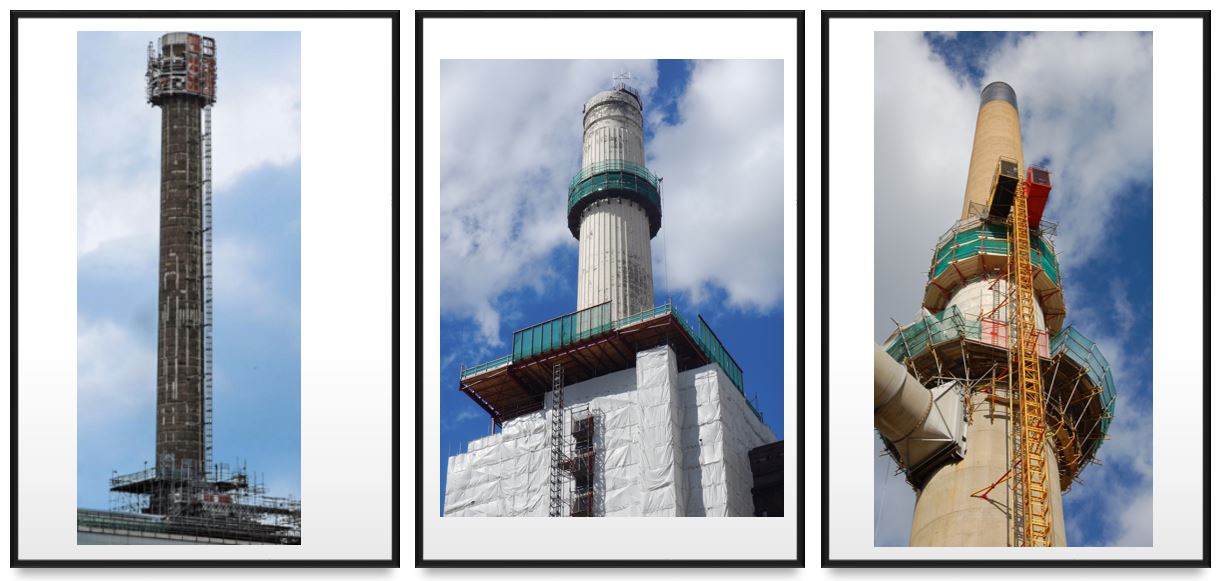
The concept of a self-climbing platform came to fruition in 2006 when Delta submitted a detailed proposal for the demolition of the four heavily deteriorated concrete chimneys at Battersea Power Station. Delta’s methodology subsequently became the preferred method for the developer Bovis Lend Lease and the site owners Parkview.
In 2007 the self-climbing platform was used at the BP oil refinery in the UK. The works were to strengthen a 140m tall reinforced concrete chimney and the platform was used successfully on this 14 month long contract without incurring any mechanical breakdown, any damage or need for any component replacements. Apart from the platform giving staff access to the work area, it was also modified to support and relocate the shuttering formwork used for the placement of the concrete.
Design of the self-climbing platform (SCP) took a conventional path spanning across the design brief, concept and calculation to approval and fabrication.
Re-designed in-house for the removal of the First Generator Reprocessing Plant Stack at Sellafield Nuclear Site in Cumbria it incorporated significant additions in the form of a roof canopy, internal platforms and total encapsulation. The off-site pre-works trial was scheduled for late 2012 and demonstrated its compliance with the Machinery Regulations to enable it to become CE marked. Fire protection played a major part in the design process by specifying the use of flame resistant materials only. Automatic overload controls, additional brake devices, self-locking actuators, push-button momentary switches and audible motion sirens forming part of the control systems brief.
The stack site element of the works was successfully completed at the end of 2019.
The SCP was also deployed and operated by Delta between 2014 and 2017 for the total removal of the four concrete chimneys at Battersea Power Station prior to their re-build.
Case Studies